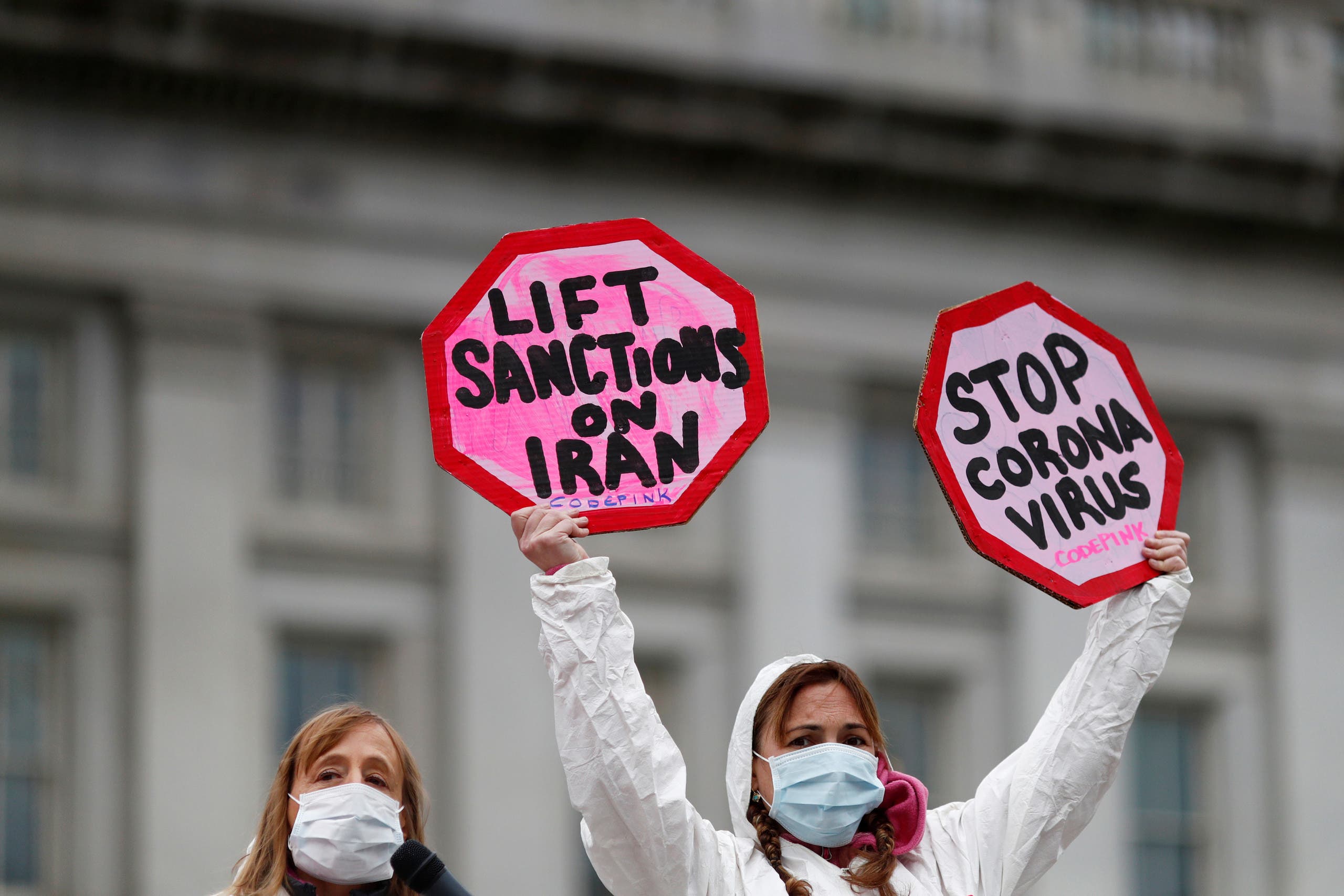Al-Arabia – In Iran, the regime’s belated and inadequate coronavirus response was the behavior of an illegitimate regime that prioritized its own survival over public health, according to experts.
Having quickly emerged in January as the epicenter of the disease in the Middle East, the government covered up news of the outbreak, was late to respond, and is accused of massively underreporting the spread of the infection.
“The jump from economic pain to political instability with protests in the streets can happen overnight because the regime is not representative of the people, it’s unpopular. They have a crisis of legitimacy, and that’s why they’re so hesitant to impose measures experts recommend,” said Ali Alfoneh, senior fellow at the Arab Gulf States Institute in Washington.
For all the latest coronavirus news visit our dedicated page
Even with warnings from the Iranian Health Ministry in mid-February, regime authorities were unwilling to implement lockdowns and social distancing measures they knew would be a blow for the already fragile local economy.
After Turkey, Iran currently is the hardest hit country in the region. The regime’s desire for a high turnout for parliamentary elections, seen as a litmus test for legitimacy, initially delayed the government’s response for a crucial period when a strong intervention could have made a huge difference.
After the outbreak was discovered in China, goods and people continued to flow between the countries.
Read more: Watch coronavirus spread across the globe: Ten questions answered
“It’s very probable that the reason that these restrictions were put in place was out of a need to not threaten Iran’s relationship with a significant and large trading partner, at a time when its economy was, was battered like never before by the sanctions,” said Dr. Amir Afkhami, an associate professor at George Washington University.
Preserving trading ties and a desire for legitimacy coupled with a weak economy fueled a series of government missteps that led Iran to have one of the highest death tolls in the world, at over 5,800, and exporting the disease across the Arab world, experts say.
Even before the pandemic spread, the unemployment rate in Iran stood at 10.6 percent. Globally, millions have been laid off as a result of lockdowns, and skyrocketing unemployment in Iran would risk protests in the street, which would be a direct threat to the revolutionary government that seized power 41 years ago.
The country likely has $50-60 billion in state coffers, but it has to be cautious with dispensing funds in emergencies like this, Alfoneh said. In early April, the government announced it would allocate 50,000 billion rials ($305 million) to the Unemployment Insurance Fund to support those who had lost jobs due to coronavirus.
“If they use all their money, they become more exposed to the next crisis down the road. They’re fighting two battles simultaneously,” Alfoneh said. “Iran has to worry about what it does in terms of what it does in terms of COVID-19 and make sure that doesn’t become a liability down the road if Trump gets reelected, which would mean four more years of sanctions.”

People attend a protest against the role that U.S. sanctions plays on Iran and the exacerbation of the coronavirus on March 11, 2020. (Reuters)
Read more: What do negative oil prices mean? Not free petrol, it seems
Now, low oil prices further stand to deliver another blow to Iran’s economy where oil accounts for 65 percent of its GDP.
US sanctions in place since 2018 when the US withdrew from the 2015 Iran nuclear deal have drastically reduced the amount of dollars available to the regime, but the leadership continues to operate a costly network of proxy militias across Syria, Lebanon, Iraq and Yemen which sow chaos and destruction in those countries.
The regime has lobbied Washington and Europe in a concerted campaign to ease sanctions to help the country address coronavirus, but analysts say the regime would only use the funds to sow more violence and misery across the region. Last week, it launched a military satellite into space using ballistic technology commonly used to deliver warheads. Analysts say Iran sees its proxy militia network as one of the major foreign policy levers it has to inflict pain on the US and its allies in the region.
Health care in Iran
Iran actually has one of the best health sectors in the region, and at the onset of the pandemic, there was no indication there was a shortage of supplies, explains Dr. Amir Afkhami, an associate professor at George Washington University. Though, like many health care systems globally, Iran’s was overwhelmed and by early March one Member of Parliament warned there were dead bodies “piling up in Qom.”
“Iran was a net exporter of personal protective gear that were indigenously produced and exported to China as late as February,” said Afkhami.
On April 1, Iran was producing 150,000 liters of hand sanitizer and 40,000 masks per day, according to semi-official Tasnim news agency. Last week, Iran’s President Hassan Rouhani claimed the country could export coronavirus testing kits. In mid-April, however, the World Bank and the Islamic Development Bank said they would lend Iran $50 million and 130 million euros, respectively, to purchase equipment to fight coronavirus.
 Shabtabnews In this dark night, I have lost my way – Arise from a corner, oh you the star of guidance.
Shabtabnews In this dark night, I have lost my way – Arise from a corner, oh you the star of guidance.


